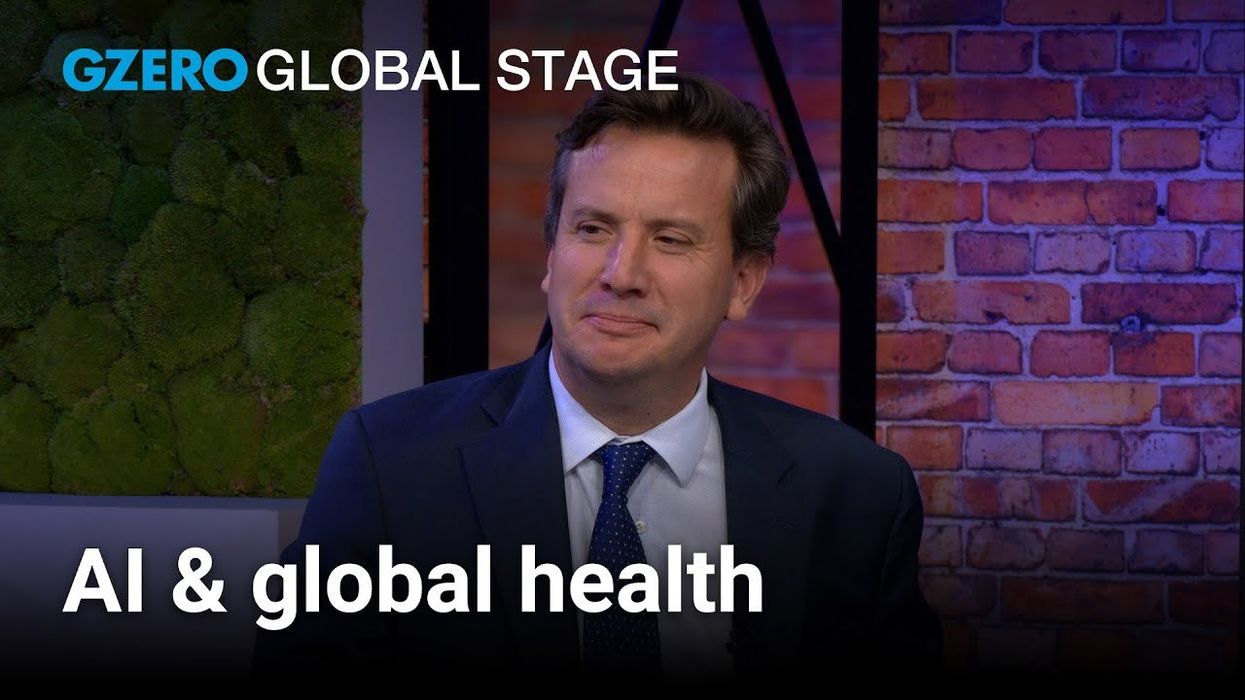As the United Nations turns 80, the urgency to rethink global cooperation has never been greater. In a live broadcast from the UN headquarters and moderated by GZERO Media’s Global Chief Content Officer, Tony Maciulis, an expert panel gathered to discuss if AI and data can reshape a strained multilateral system to meet today’s crises.
The conversation featured top UN officials and global partners reflecting on both the challenges and opportunities ahead. Guy Ryder, Under-Secretary-General for Policy, UN, emphasized that multilateralism remains essential but requires sharper results. Tom Fletcher, Under-Secretary-General for Humanitarian Affairs and Emergency Relief Coordinator, noted cautious progress in peace diplomacy while warning of extreme strain on humanitarian workers. Ugo Daniels, Deputy Director, International Organization for Migration, highlighted how data can shift focus from temporary relief to durable migration solutions.
The second panel expanded the lens: Dr. Comfort Ero, President & CEO, International Crisis Group, warned that with 62 conflicts worldwide, the UN remains indispensable but must evolve; Dr. Ahmed Ogwell, CEO & President, VillageReach; former head of Africa CDC, urged better crisis preparedness and stronger community engagement with their own data; and Gunn Jorid Roset, Director General, Norad, reaffirmed Norway’s support for reform and evidence-based aid.
Across both panels, one theme resonated: technology alone cannot end wars, heal trauma, or feed the hungry. But combined with reform, political will, and smarter partnerships, better use of data and AI can help the UN deliver solutions.
This livestream, “Rethink, Reset, Deliver Better with Data and AI,” was an event produced in partnership between the Complex Risk Analytics Fund, or CRAF’d, and GZERO Media’s Global Stage series, sponsored by Microsoft.

















